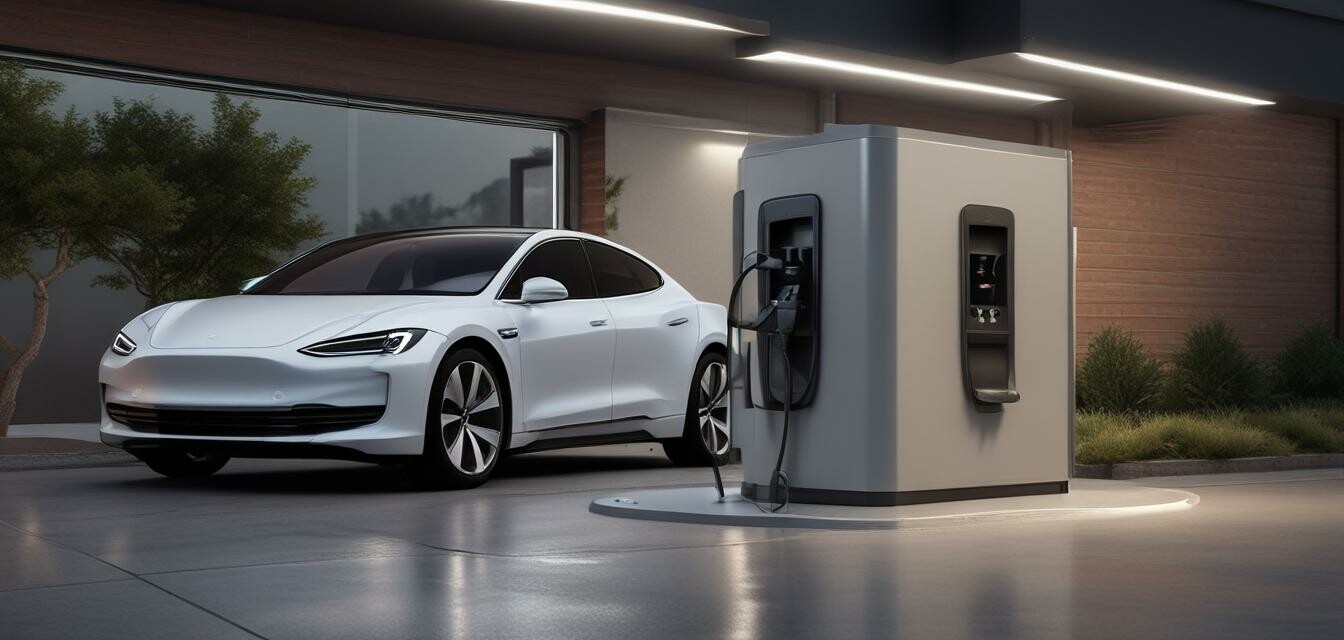
Comparing the Top EV Chargers for Home Use
Key Takeaways
- EV chargers vary in charging speeds and compatibility.
- Consider installation costs and requirements.
- Choose a charger that meets your specific vehicle's needs.
- Safety features are essential for home installation.
- Check for product warranties and customer support services.
As electric vehicles (EVs) become increasingly popular, the need for reliable and efficient home chargers has never been more crucial. With various models available in the market, making the right choice can be overwhelming. In this article, we will compare the leading EV chargers focusing on their efficiency, installation simplicity, and compatibility with various vehicle models.
Understanding EV Chargers
Before diving into the comparisons, it's essential to understand the different types of EV chargers available:
- Level 1 Chargers: Utilizes a standard outlet, slower charging speeds.
- Level 2 Chargers: Requires a dedicated 240V outlet, faster charging for home use.
- DC Fast Chargers: Mainly for commercial use, providing rapid charging capabilities.
Top EV Chargers for Home Use
Here’s a comparison table of some of the most popular EV chargers suitable for home installations:
| Charger Model | Charging Speed (Level 2) | Installation Type | Compatibility | Safety Features | Warranty |
|---|---|---|---|---|---|
| Model A | 25 miles/hour | Hardwired | Most EV brands | Overcurrent protection | 3 years |
| Model B | 20 miles/hour | Plug-in | Compatible with EVs using J1772 connector | Surge protection | 5 years |
| Model C | 30 miles/hour | Hardwired | Universal compatibility | Built-in safety timer | 2 years |
Evaluating Charging Speeds
When choosing an EV charger, charging speed is a key factor. The faster a charger can supply electricity, the quicker you can get back on the road. Comparing the charging speeds of different models enables you to choose one that fits your driving habits.
Installation Considerations
Installation can affect the overall cost and functionality of your home charging system. Here are some important installation aspects:
- Some chargers may require a qualified electrician for installation.
- Consider the location of the charger concerning your parking space.
- Evaluate if a hardwired or plug-in installation is best for your needs.
Compatibility with Different EV Models
It's essential to check whether the EV charger is compatible with your car. Most chargers are equipped with J1772 connectors, making them compatible with a wide range of brands.
Tips for Beginners
- Research local incentives for EV charger installation.
- Read product reviews to ensure quality and performance.
- Check with your car manufacturer for recommended chargers.
Pros
- Convenient at-home charging solution.
- Can save money on fuel in the long run.
- Reduces reliance on public charging stations.
- Enhances property value.
Cons
- Initial installation costs can be high.
- May require electrical upgrades in your home.
- Charging speeds can vary significantly between models.
Safety Features to Look For
Safety is paramount when installing an EV charger. Look for these basic safety features:
- Overcurrent protection
- Surge protection
- Ground fault protection
- Temperature monitoring
Conclusion
Choosing the right EV charger for home use involves evaluating various factors such as charging speed, installation requirements, and compatibility. By comparing these key attributes, you can make an informed decision and enjoy the convenience of charging your electric vehicle at home. For more insights on various electric products, check out our other articles on [smoke detectors and safety equipment](https://electriancsupplies.com/products/smoke-detectors-safety-equipment) and [tools & accessory kits](https://electriancsupplies.com/products/tools-accessory-kits).
For ongoing updates and industry insights, be sure to visit our [News & Trends](https://electriancsupplies.com/blog/news-trends) category.